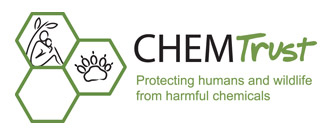Chemycal has been acquired by 3E
Learn MoreChemycal has been acquired by 3E
Learn MoreDiscover how Chemycal PRO helps you boosting your regulatory monitoring:

European elections will be taking place from 23rd – 26th May 2019, with more than 400 million people eligible to vote across 28 Member States. Voters will elect over 700 Members of the European Parliament (MEPs), who have the power to amend proposed EU laws, contribute to EU policy making and will cross-examine and vote on a new European Commission later this year.
Environmental policy will undoubtedly play a key role in the next Parliament, and a recent YouGov poll in eleven EU Member States found that the environment was important for around 80% of voters in each country. A range of civil society groups have published ‘manifestos’ listing their priorities for the EU and for these elections, and hazardous chemicals are a common theme in many of them.
The ‘Green 10’, which is an EU-level coalition of the main environmental groups, including Greenpeace, Friends of the Earth, WWF, European Environmental Bureau, HEAL and Birdlife, has published a manifesto for the elections which calls for action on hazardous chemicals:
6. Detoxing Europe’s future.
Many goods contain chemicals such as plastics, flame retardants or nanomaterials. They threaten wildlife, the environment and public health – increasing the risk of serious diseases such as cancer, infertility problems and neurodevelopmental disorders. They also come at a serious financial cost. The EU must reduce people’s exposure to hazardous chemicals, while accelerating substitution with safer alternatives. It must regulate to protect the environment and people’s health from pesticides, endocrine disruptors, and poisoning from lead, mercury or other toxic chemicals.
They also call for a clean circular economy:
7. Clean circular economy: use fewer resources, and harmonise chemical, product and waste laws.
Europe’s throwaway culture worsens social inequalities, threatens public health and depletes resources worldwide. Poor coordination between laws on chemicals, products and waste impedes the protection of material cycles from toxic chemicals. The EU needs coherent policies to prevent waste and promote the use of durable and repairable toxic-free goods by design. Hazardous substances should not survive in recycled products. This shift will result in cost savings, new jobs, healthier people and a safer environment.
CONTINUE READING ON chemtrust.org
2013 © MyChemicalMonitoring. ALL Rights Reserved. About Us | Terms and Conditions